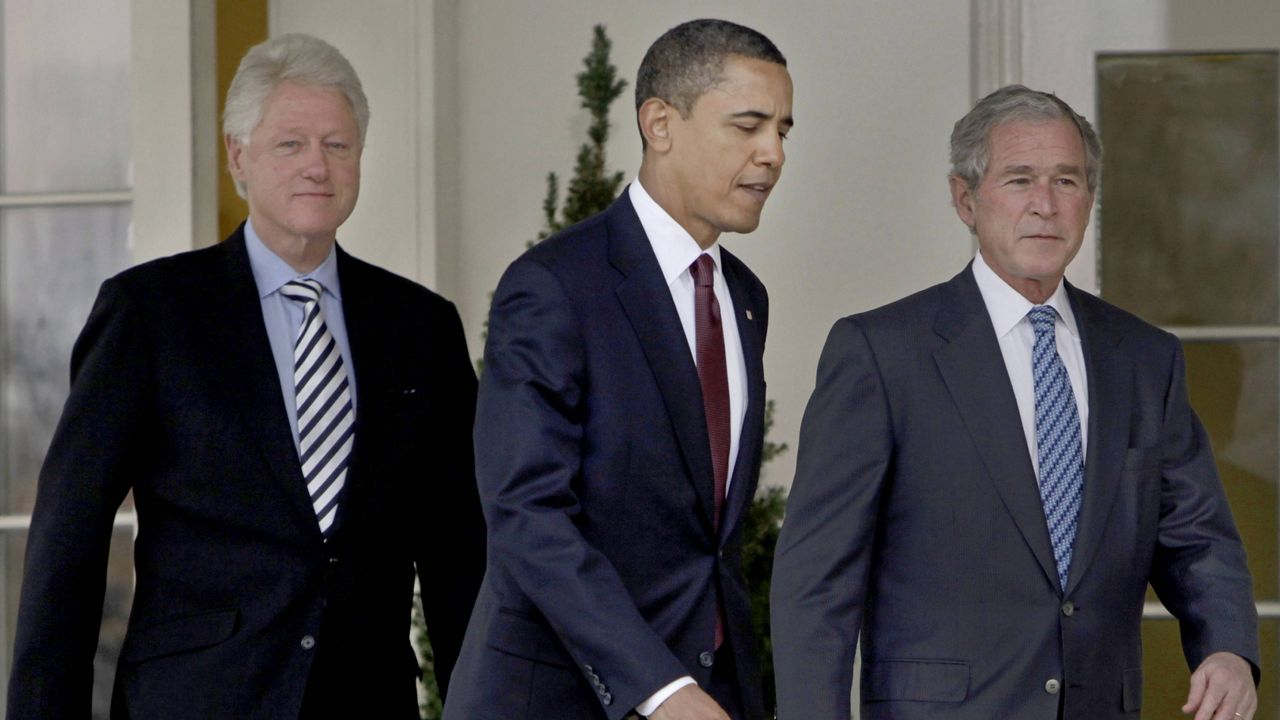Former Presidents Barack Obama, George W. Bush and Bill Clinton say they are willing to receive a COVID-19 vaccine on camera in an effort to boost public confidence in the shots.
What You Need To Know
- Former presidents Barack Obama, George W. Bush and Bill Clinton say they are willing to receive a COVID-19 vaccine on camera in an effort to boost public confidence in the shots
- Bush's chief of staff told CNN that the 43rd president contacted Dr. Anthony Fauci and Dr. Deborah Birx volunteering to help promote the vaccine
- A recent poll found 58% of Americans are willing to receive the vaccine when it's available
Freddy Ford, Bush's chief of staff, told CNN that the 43rd president contacted Dr. Anthony Fauci, director of the National Institute of Allergy and Infectious Diseases, and Dr. Deborah Birx, the White House coronavirus response coordinator, volunteering to help promote the vaccine.
"A few weeks ago President Bush asked me to let Dr. Fauci and Dr. Birx know that, when the time is right, he wants to do what he can to help encourage his fellow citizens to get vaccinated," Ford said. "First, the vaccines need to be deemed safe and administered to the priority populations. Then, President Bush will get in line for his, and will gladly do so on camera."
In an interview with SiriusXM’s Joe Madison that aired Thursday, Obama said he would have no qualms about being given the vaccine if Fauci signs off on its safety and efficacy.
"People like Anthony Fauci, who I know, and I've worked with, I trust completely," Obama said. "So, if Anthony Fauci tells me this vaccine is safe, and can vaccinate, you know, immunize you from getting COVID, absolutely, I'm going to take it.
"I may end up taking it on TV or having it filmed, just so that people know that I trust this science, and what I don't trust is getting COVID," he added.
And Clinton’s press secretary, Angel Urena, told CNN: “President Clinton will definitely take a vaccine as soon as available to him, based on the priorities determined by public health officials. And he will do it in a public setting if it will help urge all Americans to do the same.”
Experts estimate that 60-70% of the population would need to be immune to achieve herd immunity, which makes the spread of the virus from person to person unlikely.
A Gallup poll released in mid-November found that 58% of Americans say they would take the vaccine, up from 50% in September.
The Food and Drug Administration is considering requests for emergency use authorization for two vaccines — one from Pfizer and its German partner, BioNTech, and the other developed by Moderna Inc. and the National Institutes of Health.
Data from clinical trials showed that both vaccines are about 95% effective and had no serious side effects.
The FDA has scheduled a Dec. 10 meeting of its outside advisory panel to discuss Pfizer and BioNTech’s application. The agency announced Monday it has also scheduled a Dec. 17 meeting to discuss the Moderna vaccine.
If either or both are approved, the first shots could be administered later this month. A government advisory panel this week said that health care workers and nursing home residents should be the first to be vaccinated.
General Gustave Perna, who oversees vaccine distribution under Operation Warp Speed, said Wednesday that the federal plan is to vaccinate 20 million people by the end of the year, another 30 million in January and 50 million by the end of February — or 100 million overall in the next two-plus months.
On Tuesday, the United Kingdom approved Pfizer’s vaccine for emergency use.



